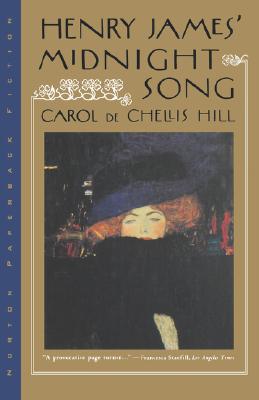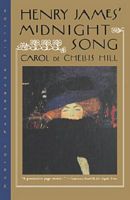- Welcome to FictionDB, Guest
- | My Account
- | Help

Henry James' Midnight Song — Carol De Chellis Hill
“Henry James' Midnight Song is so exciting that I got up in the middle of the night to finish it―I couldn't sleep wondering what would happen next. Yet it is so intellectually complex that repeated readings only reveal richer meanings and more subtle shades of thought. In its virtuosity, as well as its themes and techniques, this novel puts Carol DeChellis Hill among postmodern masters such as Thomas Pynchon, E. L. Doctorow, and Umberto Eco. She may even be better.” ―Judith Caesar, Philadelphia Inquirer
The Setting: Fin de siecle Vienna - a society of almost unprecedented vitality, enlivened by new movements in music, art, fashion, literature, psychology, and love. Yet Vienna is a society on the edge of chaos. Beneath the glittering surface it seethes with conflict and ethnic tension. Divided by anti-Semitism, racism, feminism, sex, and the denial of sex, it is a society remarkably similar to our own. The Plot: The women of Vienna are dying - some by murder, some by suicide. During Dr. Freud's absence in Paris, a body is found in his study but disappears as quickly as it was discovered. Was there really a murder or was it merely hysteria on the part of Freud's wife and sister-in-law? How does this body fit into the recent epidemic of women's mysterious deaths in Vienna? Into the web of deceit, murder, and social upheaval step a variety of "real" characters, each with something to hide, who become suspects in the case: the distinguished novelist Edith Wharton, who comes to Vienna to engage in a passionate illicit affair; her friend and traveling companion Henry James, who has consulted Freud about his own secret trespasses; Freud's colleagues Dr. Jung and Dr. Fliess; and Jung's patient-lover, Sabina Spielrein. Drawn into the plot as well are the Mains, the family of an American businessman, along with Police Inspector LeBlanc, who arrives from Paris to pursue the strange case amid mounting anti-Semitic desire to lay blame for the murders at the door of Jews. Will the inspector solve the murders before a riot ensues? The Novel: Is fiction, as Henry James says, just the other side of history? Is Vienna in 1900 merely a stage on which the same tensions that haunt American society today are being given a dress rehearsal? Are we, like the Viennese of 1900, suffering from fin de siecle syndrome? Is there such a thing? Combining the historical imagination of Ragtime with the intellectual audacity of Flaubert's Parrot, Henry James' Midnight Song brilliantly blends history and fiction in a fast-moving, breathtakingly original novel of ideas.Genres
Sub-Genres
Click on any of the links above to see more books like this one.


